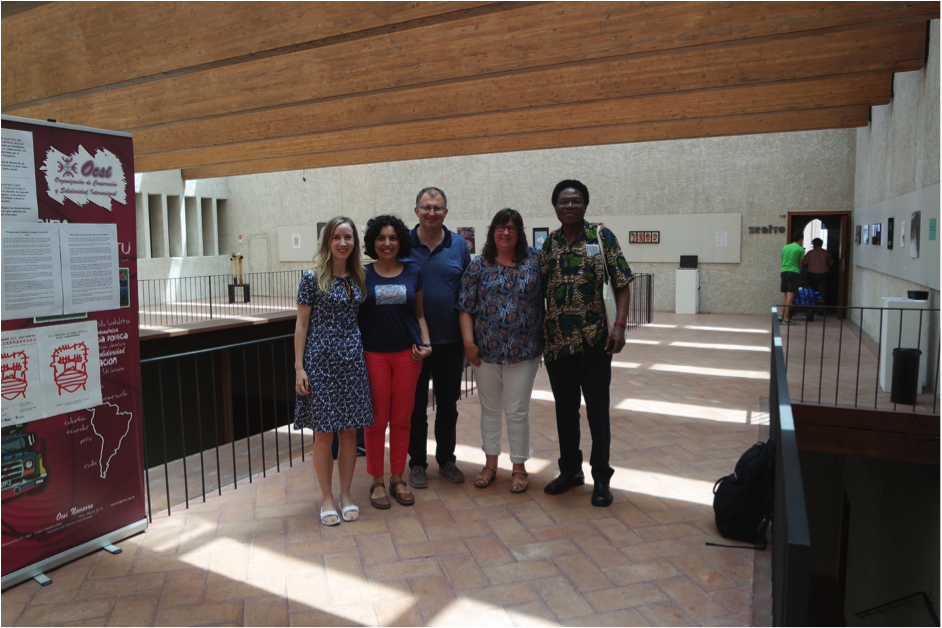Conflict minerals: sharing good practice in Spain

Research and Policy Manager Liz Cooper reflects on sharing the University’s work on Conflict Minerals in Spain.

The Citadel in Pamplona
At the end of June, I spent a few days in north east Spain at a summer school organised by the Public University of Navarre, Pamplona. A couple of years ago, Susana, who works at the Public University of Navarre, visited the University of Edinburgh through an EU staff mobility scheme, to learn more about our sustainable procurement and fair trade work. This year, she organised a summer school for students (and also for staff from other universities) on the topic of conflict and natural resources, and so invited me to come and give a university perspective, given our 2016 Conflict Minerals Policy and associated efforts. Other speakers talked about their academic research or NGO perspectives, and Fairphone also talked about their research and development work regarding ‘conflict-free’ technology.

A beautiful spot at the summer school venue
The summer school was delivered in Spanish – and I don’t speak Spanish. But I got by, given that I speak French and basic Italian – I just had to listen carefully! I delivered my presentation in English, but students were given printouts of my slides translated into Spanish, and a professor interpreted the question and answer session. I explained the context of the SRS Department and our remit in the University, and the background to our Fairness in Trade and Sustainable Procurement programme – starting with fair trade in 2003, leading to the Conflict Minerals Policy in 2016, and our focus on modern slavery at present, in light of the 2015 UK Modern Slavery Act. It was particularly useful to exchange experiences with the staff from the Public University of Navarre, who were interested in how we work to bring together academics and operations staff, to collaborate on approach sustainable procurement, and how we engage students in SRS work more generally.

In the old streets of Pamplona – home of the world-famous Bull Run
Pamplona itself is a beautiful place, with winding narrow streets in the old town, a picturesque old square, and a 16th century citadel. I definitely felt some cultural differences – with our coffee breaks during the working day being taken standing at the bar of a small, local restaurant, and two-hour sit-down three-course lunches. It was valuable to have the time to talk over lunch and relax – perhaps we could learn something from this, rather than opting for standing with a plate of sandwiches at an event while rapidly networking! (I’m not too keen on the traditional bull run through the streets, however, that takes place in July in Pamplona.)
In terms of our next steps for this work, I will keep in touch with several of the university staff and NGOs from the summer school, and explore ways we can work together. We are about to start work on an EU-funded project entitled ‘Make ICT Fair – reforming manufacture and minerals supply chains through policy, finance and public procurement’ in collaboration with ten civil society partners across Europe, which will include research and awareness raising on working conditions in electronics manufacturing, and also conflict minerals.





Recent comments